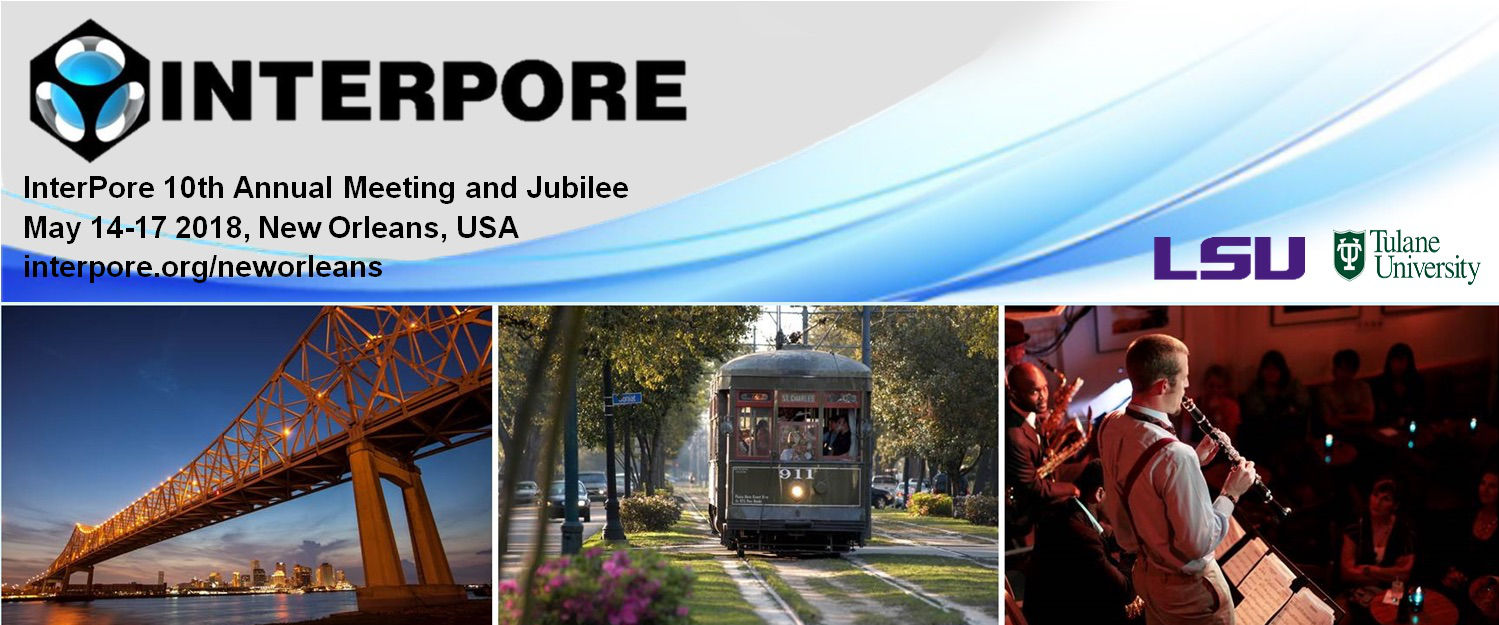Speaker
Description
Hydrocarbon sorption in unconventional formations accounts for a significant amount of gas in place depending on rock mineralogy and organic content. Traditionally, sorption amount experiments have been performed on powders or crushed porous solids that ignore changes in pore structure.
Dilatometry experiments, however, show that changes of volume during sorption can result in dramatic changes to porosity structure that alter the organic-rich nanoporous solid. The maximum linear swelling strains in natural nanoporous media such as coal and shale caused by sorption of light hydrocarbons and CO2 vary from 0.05% to 1% and differ with respect to the orientation to deposition bedding.
An organic-rich nanoporous solid exposed to a sorbate and constrained to do not deform, develops sorption stresses rather than sorption strains. The sorption stress was measured in coal with values as large as ~40 MPa at a CO2 bulk pressure of 5 MPa. Direct measurements of desorption stress have also been done in coal with CH4.
In this work we show a comprehensive review of sorption-induced strains and stresses in organic-rich rocks. We use these laboratory measurements in an up-scaled reservoir model that permits quantifying the effects of sorption-induced stresses on fracture permeability and on production rates. We compare cases of coal and shale natural gas reservoirs.
The results show that gas desorption-induced stresses have a significant effect on the evolution of stresses in the reservoir and therefore on the permeability of natural and induced fractures.
| Acceptance of Terms and Conditions | Click here to agree |
|---|


